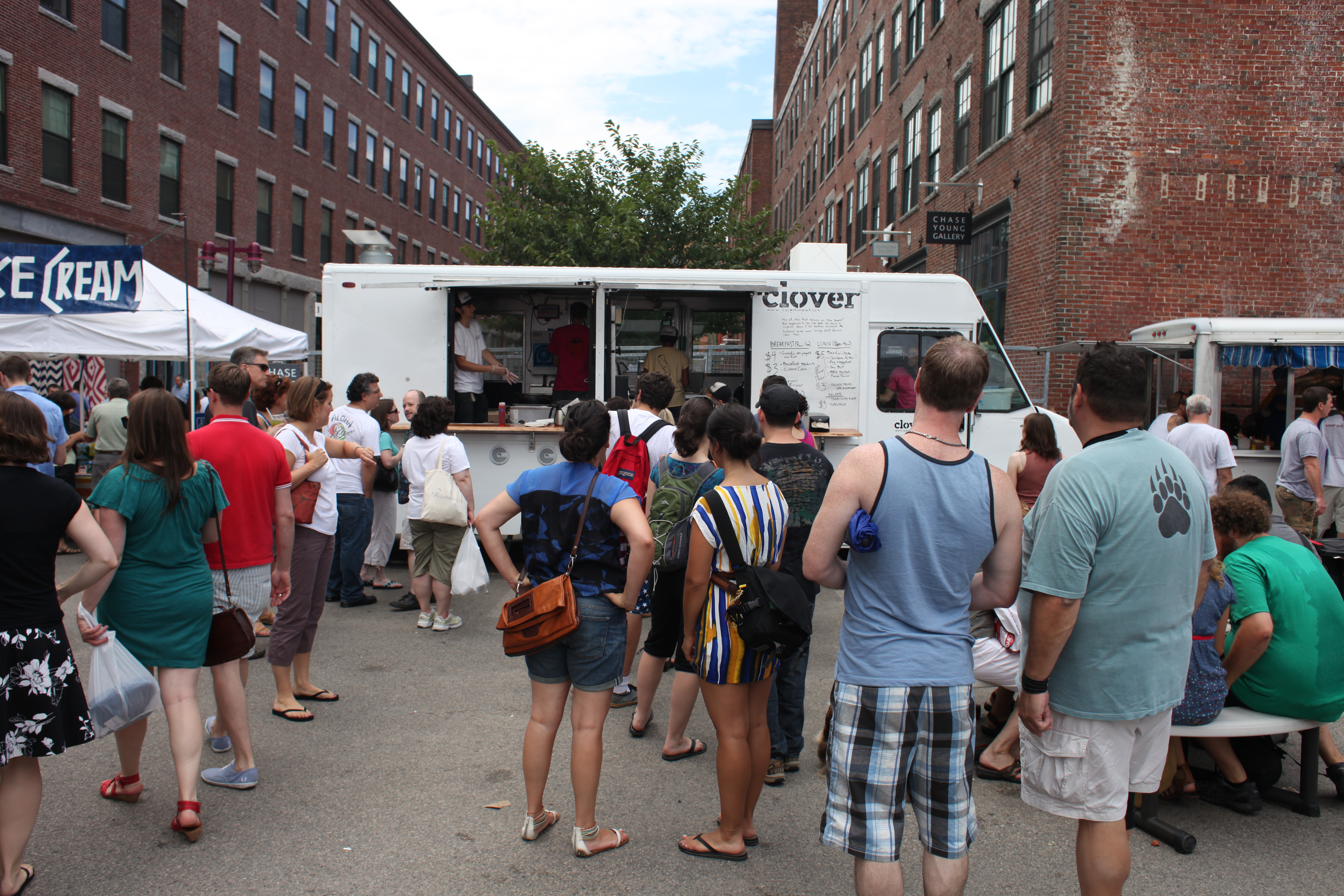I was at SoWa the other Sunday for the first time this season. The truck is there every single Sunday, I just hadn’t worked it myself until now. Met a ton of great people, helped deal with running out of bread, and did my best to keep the line down. Sandy, who’s been running this truck, was handling everything with a cool head.
Have you been to SoWa market? I’ll admit, I hadn’t been before we started operating there end of last summer. This was back when the city of Boston was first starting to promote the idea of food trucks. We’ve enjoyed being a part of the market since. Some of our best customers there are other vendors, and it’s great to meet so many people. My only complaint is that Chris Masci, the guy who runs the market, insists on moving the location of our truck every single weekend. It’s suppose to be for fairness or something. I’d rather take the “worst” spot and hold it consistently than move around.
This get’s to a recurring issue we’re having this year. The City opened up these public parking spots. We applied for a couple we loved and didn’t get any of what we’d asked for. But the reason is because they wanted us to move around. Different spot every single meal every single day. So say, breakfast on Monday spot#1, lunch on Monday spot#2, dinner on Monday spot#3, breakfast on Tuesday spot#4 and so on. I’m not sure I understand exactly, something about the way the folks that are developing all of this stuff for the city think of food trucks. Maybe informed by the media, TV?
When we first opened as a food development platform I was thinking along the same lines. I thought: what if we could park in one place, then another place, people could follow us by Twitter, it’s a whole new world. This was pre-Kogi, back in 2009 and it seemed like an exciting idea. Then Cambridge told me that they have a moratorium on food trucks. Boston wouldn’t let me get licensed. And quickly that idea evaporated.
But I also learned more about this business. There really aren’t any examples of trucks moving all over the place that have found long term success other than ice cream trucks. All of the real truck operators, falafel trucks in NYC, taco trucks on the west coast, carts in Phily, the trucks at MIT. All of those operators have set locations that they return to every day. And it’s not a mistake.
Twitter is fun and all, but do you really want to go hunting for your meal every time you’re hungry? Nope. You really don’t. And that’s why the multi-location thing will never work very well in the long term.
It works fine as an impulse buy (e.g., ice cream trucks, or newer concepts like Dessert Truck, Treats Truck). It also works well right now because of the media hype around trucks. People are really excited to find a truck of any kind. Of course, Clover is the opposite of an impulse buy. Nobody sees our truck for the first time and says “oh, let’s grab an Egg and Egg!” Most of our customers have to look at us with skeptical curiosity a few times, chat with us, etc. before they warm up to the idea of trying our food.
Long term I think food trucks do better with consistency of service. They’re still mobile. You could be one place on week days, another place on Friday nights, and another place on weekends. But I’m very skeptical that the musical chairs is going to work well for anybody long term.


